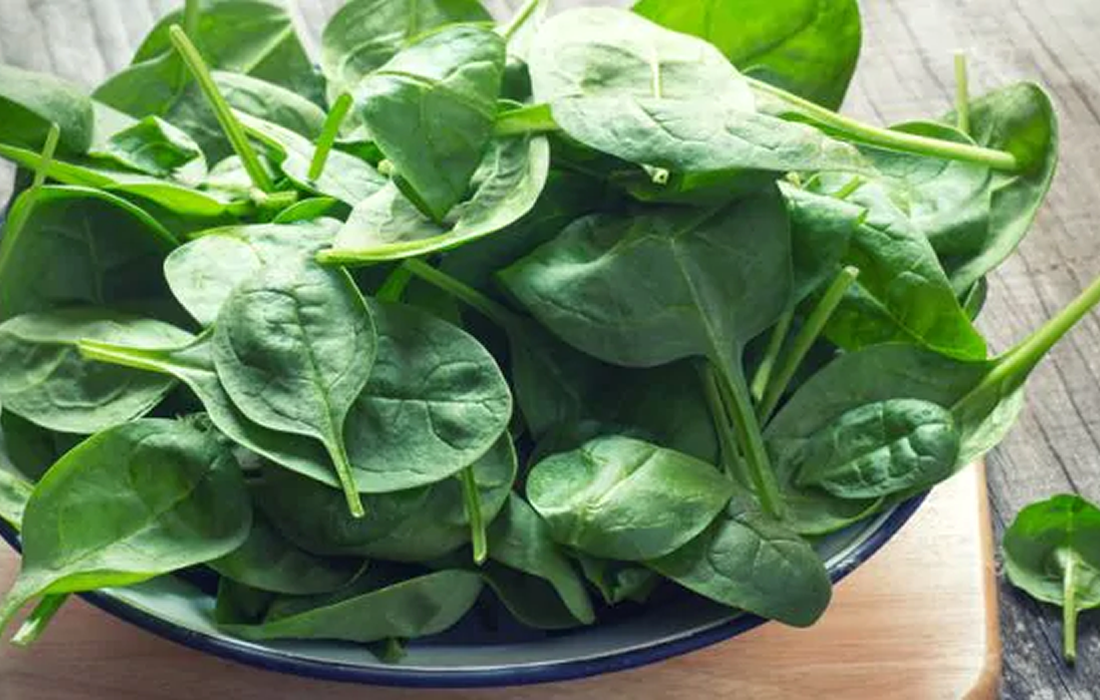Nutrition and Supplements
Spinach Reduces Colon Cancer Risk
Spinach is a dark leafy green vegetable with a high chlorophyll content and other diverse bioactives. Previous research has identified spinach as having anti-colon cancer properties. A new study from the TAMU Health Science Center reaffirmed the anticancer properties of spinach and investigates how the vegetable with gut bacteria and genetics to achieve its beneficial effects.
According to the Centers for Disease Control and Prevention (CD), colorectal cancer is the third leading cause of cancer deaths in the United States. It is also the third most common cancer in both men and women. Colorectal cancer encompasses colon cancer and rectal cancer. The colon and rectum are both parts of the large intestine.
Previous research has established that eating spinach can reduce the risk of colon cancer by as much as half. The study reaffirms the anticancer properties of spinach and investigates how the vegetable interacts with gut bacteria and genetics to achieve its beneficial effects.
Spinach inhibits the growth of colon polyps. Of all colorectal cancer cases, the hereditary familial type accounts for only 10–15%. Furthermore, only 5–10% of polyps develop into colorectal cancer. The researchers confirmed the ability of spinach to repress the development of polyps in rats that had this induced form of colorectal cancer.
Familial adenomatous polyposis leads to the growth of multiple, sometimes hundreds, of noncancerous colon polyps. Most people with the condition eventually require surgery to remove the colon, after which they will use potentially toxic nonsteroidal anti-inflammatory drugs (NSAIDs) to keep polyps from growing in the duodenum.
What did the researchers do?
The team of researchers employed an adenomatous polyposis coli (Apc)-mutant rat model to examine the anticancer outcomes from the consumption of spinach. This model mimics disease progression in human familial adenomatous polyposis patients, involving spontaneous tumor development both in the colon and in the small intestine.
The rats were given a diet containing 10% freeze-dried baby spinach, starting at 4 weeks of age. When the experiment was terminated, after the rats had reached 30 weeks of age, tumor multiplicity was decreased significantly both in the colon and in the small intestine, and tumor volume also was reduced significantly in the colon by spinach treatment.
Results
They examined the interrelationships between host genetics, gut microbial composition, dietary exposure, and disease outcome in an Apc-mutant model that mimics hereditary humans. The researchers analyzed samples from 3 systems:
- The microbiome: beneficial and harmful gut microbiomes.
- The transcriptome: the collection of RNA and mRNA that cells or tissue express.
- The metabolome: metabolites that cells produce during metabolic activity.
Spinach offers plenty of health benefits in any event, as cardiology dietitian Michelle Routhenstein, who is the owner of Entirely Nourished and was not involved in this study, told Medical News Today:
“Spinach contains several nutrients that help protect your heart health. Spinach is a rich source of vitamin K1, which has been shown to help reduce the risk of cardiomegaly. Spinach is also naturally rich in glutathione, which helps boost the master antioxidant pathway in the body, [helping] address oxidative stress and support immune function.”
Routhenstein continued: “Spinach also contains folate, which is one of the vitamins needed to lower homocysteine levels in the body — high homocysteine levels lead to promotion of plaque in the arteries. Folate-rich foods have also been shown to lower uric acid levels by inhibiting purine formation.”
Conclusions
Their results provided evidence for the marked anticancer efficacy of dietary spinach in the mice model that they studied. Whereas butanoate metabolism was probably associated with increased α-diversity of the gut microbiome, multiple spinach-derived linoleate intermediates with known anti-inflammatory and proapoptotic mechanisms were detected at increased levels in the colon tumors from rats treated with dietary spinach.
One of the investigators Dr. Roderick Dashwood stated that based on their results people should start consuming spinach as a preventive measure against the development of colon cancer and that the sooner you start, the better.
Source:
Ying-Shiuan Chen, et al. Dietary spinach reshapes the gut microbiome in an Apc-mutant genetic background: mechanistic insights from integrated multi-omics. Gut Microbiomes. 2021. Vol 13, No. 1. https://doi.org/10.1080/19490976.2021.1972756
https://www.medicalnewstoday.com/articles/spinach-reduces-colon-cancer-risk-study-explores-how
Image from:
https://food.ndtv.com/food-drinks/5-wonderful-benefits-of-spinach-you-never-knew-1765072

